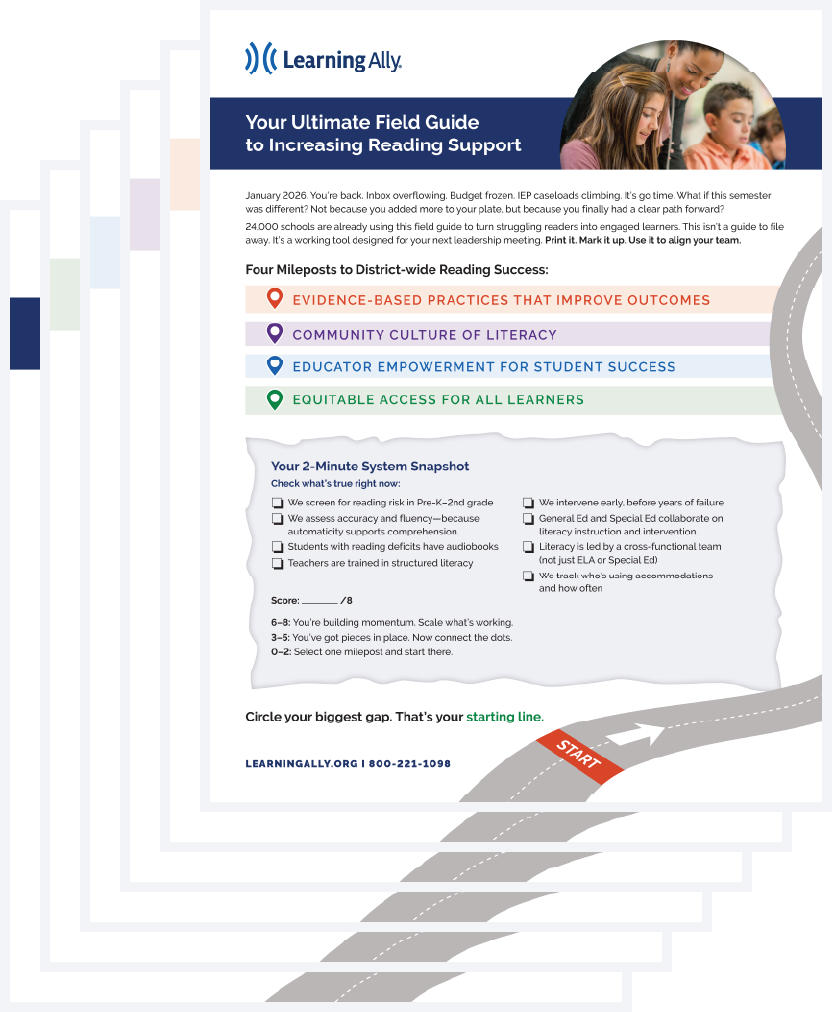Bianca Dino, Manager of Professional Learning, Learning Ally There’s something powerful that can happen when educators gather in the same room with a shared purpose. I was reminded of this… Read more
Categories: UncategorizedLearning Ally Blog: Access and Achievement
Now more than ever, people with learning and visual disabilities are flourishing in the classroom, launching productive careers and becoming assets in their communities. This blog spotlights remarkable individuals who demonstrate that having a visual or print disability is no barrier to educational success.
We often talk about literacy in terms of curriculum, screeners, and statutes. But walk into any classroom, and the reality is much more human. It’s January 2026. You are back… Read more
Categories: UncategorizedAs the New Year begins, it’s the perfect time to focus on helping children develop lasting reading habits that support academic success, confidence, and lifelong curiosity. Just like brushing teeth… Read more
Categories: ActivitiesEvery year, educators look for proven ways to motivate reluctant readers, build consistent reading habits, and create that spark—the moment students see themselves as capable, confident readers. Learning Ally’s Great… Read more
Categories: Great Reading Games


